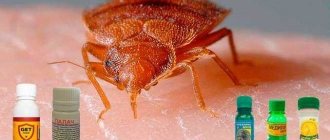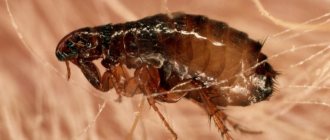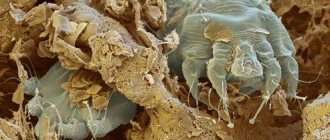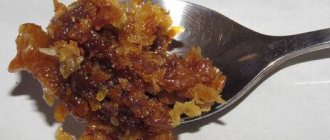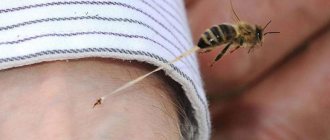For ticks, it is best to use industrial acaricidal preparations, since arthropods are much less “timid” than insects. Not all folk remedies suitable for mosquitoes and flies will repel arachnids. But what ticks fear will also repel insects.
What is a tick afraid of?
Although ticks are great lovers of moisture, prolonged immersion in water is destructive for them, this is due to the structure of their body.
But there are aquatic parasites that live on fish, reptiles or waterfowl. Bloodsuckers do not have eyes, but they have important, well-developed sensory organs on the front pair of legs. They can distinguish odors from a distance of 10–15 meters. This feature can be used to combat them.
Ticks.
Impact of temperatures
Some types of ticks can be found even in Antarctica, but if you throw a tick into water and freeze it, the ice will simply crush it.
They prefer shade, moisture and warmth, but do not tolerate direct sunlight and temperatures above 30 degrees. So you should choose sunny meadows for relaxation and avoid tall grass.
After washing clothes from a walk in a machine at high temperature, the parasite will probably die. In the fight against dust mites, heating contaminated laundry with an iron or steamer is also effective.
Scabies and demodexes, which live under human skin, die during febrile conditions of the body with an increase in body temperature.
The influence of plant odors
Using various pungent plant odors, you can effectively repel the attack of bloodsuckers. The main thing is that the source is safe for humans.
If you plant various flowers and herbs at your summer cottage, this will not only negatively affect the number of ticks, but it will also be convenient to prepare numerous means to combat them.
Peak activity
Unfortunately, the danger of these bloodsucking creatures is not the bite, but the fact that they are carriers of infections. When the parasite attacks a person, it can transmit an infection that can have serious consequences, such as paralysis, deafness and even death.
It is very important to minimize the likelihood of an attack, and for this you need to know when the bloodsuckers are most dangerous, namely, during what period the peak of activity occurs
As we already know, tick activity begins in early spring and continues until autumn. This is a fairly long period and it is impossible to say exactly when the peak will occur. But most often the most dangerous and aggressive insects are from the end of April and this period continues until the beginning of July.
Already in the second half of July, activity decreases significantly. This decline is associated with the life cycle and climatic conditions. Since most often the weather is pleasant with hot and sunny days, which are not favorable for parasites, they prefer to rest and hide in the shade. But this does not mean at all that they completely disappear and a person should not be afraid of them. Attacks are possible and occur quite often, but in much smaller numbers. They are also dangerous in the autumn, especially when the weather is warm and there is no frost.
So, from the second half of April until mid-July, vacationers in nature should be as careful and attentive as possible, since this is the period of peak activity. Then their numbers decrease significantly and they become less aggressive. But the danger they pose should always be remembered, despite periods of maximum activity.
Basic methods of protection against parasites
Spring is a special time when not only nature and the inhabitants of the forest come to life, but also bloodsuckers - hunters - wake up.
Vaccination
Do not neglect the rules of prevention against tick bites, because there are no vaccinations against parasites.
There is only a vaccine against tick-borne encephalitis, and not against all diseases carried by blood-sucking animals. Vaccination will actually protect by 95%, but even in case of infection, the disease will proceed more easily and with minimal consequences.
Vaccination consists of three doses and is carried out according to the scheme:
- Vaccination is carried out in the fall, in October.
- In the spring, 5 - 7 months from the first.
- 9 – 12 months from the second.
Revaccination is carried out every three years.
There is an emergency vaccination scheme against tick-borne encephalitis. It creates the same lasting immunity as with the standard regimen.
It is carried out according to plan:
- In spring, in March on a selected day.
- A month after the first one.
- 9 – 12 months from the second.
Revaccination is also every three years.
Vaccines have been developed for children; their use is permitted from one year of age, but with caution and under the supervision of a pediatrician.
Protective clothing
If the risk of suffering from tick bites is low, then high-quality repellents and reliable equipment will be sufficient.
There are special protective suits on sale, they are also called anti-encephalitis suits, similar to fishing suits. They provide the maximum degree of protection against tick penetration. Bloodsuckers purely mechanically cannot break through to the body.
It is sewn in such a way that the inner cuffs fit tightly to the body and are impregnated with a special repellent. In addition, these suits have traps - pockets, when a tick crawls from below, it will certainly fall into them. And the traps are also impregnated with a special substance of high concentration.
Once a month, such suits must be independently treated with special chemicals. Such suits are available in the form of overalls and two-piece: shirt and pants. They all have hoods with mesh, which you can lower to completely isolate yourself.
Pharmacy and folk remedies
Has a good repellent effect:
- balm Zvezdochka;
- liquid smoke.
Or oils:
- carnation;
- lavender;
- anise;
- hit.
Going to the hospital
It's time to figure out what to do after a tick bite.
When the wound has been treated and the tick has been sent to the laboratory, you should go to a medical center and take a blood test.
There is no point in treating a tick-borne infection on your own; you can only make the situation worse. There have been cases when patients prescribed medications to themselves, following supposedly proven “recipes” from the Internet. An incorrectly disclosed diagnosis and incorrectly selected pills doomed people to the first group of disability.
Even before going to the doctor, you can understand whether an infection has occurred: if after a bite there is an elevated temperature (37.0 - 39.0 degrees), weakness in the body, rapid heartbeat and, in rare cases, an allergic rash, then the body is affected.
If the site of the tick bite is severely inflamed, there may be parts of the insect remaining in the wound - the proboscis or legs
Removing foreign substances from the blood can take from two weeks to a couple of months. It all depends on the victim’s immunity. Treatment is carried out inpatiently: it is impossible to endure the disease “on your feet”.
Having figured out what to do if a person is bitten by a tick, you can move on to the next question: what diseases does the parasite actually transmit?
The most effective folk recipes for repelling ticks
The best method of protection is chemical; it kills ticks, but sometimes effective folk remedies come to the rescue that can repel ticks. After all, parasites pose a serious threat to human health, carrying pathogens of serious diseases. Danger can lurk everywhere: in a city park, a summer cottage, in the forest, and even in the courtyard of a house.
Oils and plants that mites don't like
Aroma oils, although they disappear after a couple of hours and require frequent reapplication, are very suitable for repelling. They have a good effect:
- eucalyptus;
- pine nuts;
- geranium;
- basil;
- sagebrush;
Plants with a specific aroma have a detrimental effect on blood-sucking forest parasites. These are pleasant scents for people:
- basil;
- sagebrush;
- thyme;
- rosemary.
Other drugs based on improvised means
Alert
A danger signal for them is bright, sharp, spicy, pungent, tart odors. Using this knowledge, you can prepare various sprays, solutions, and gels.
Surface treatment
When a tick comes into contact with the treated surface, it immediately begins to lose orientation in space, it develops convulsions, and it itself falls from the fabric to the ground.
Formic acid
Formic acid has a lethal effect on ticks. In areas where there are many anthills, they are practically not found.
Preparing repellents
Components for making your own repellents can be found in every home. For the base, apple cider vinegar, alcohol or alcohol tincture, and cologne are suitable.
Allelopathic effect of essential oils
It has been noted for quite some time that plants can influence each other. There is even a whole science that studies this interesting natural phenomenon, and it is called allelopathy. Research has shown that many essential oil plants have this property. For example, when sowing clary sage in the same field, the plants develop poorly, and the seedlings turn out to be very unfriendly. When sowing catnip together with other crops, it was noted that it has a positive effect on the initial growth of Moldavian dragonhead, wheat, buckwheat, coriander, dill), and in the marked marigolds (Tagetes signata) growth slowed down.
On the other hand, essential oil has a negative effect on the germination of radish seeds and the growth of watercress and wheat seedlings. In high concentrations (10 μl/Petri dish), catnip oil and its vapors reduce the germination of these crops by 80 percent or more. The aqueous solution is more active than the volatile fractions. The lowest concentration (1 µl/Petri dish) completely inhibits the growth of watercress roots. Plant growth responses are more sensitive to essential oils than seed germination. The root system is more sensitive than above-ground organs. Suppresses the growth of fungi in the soil.
Photo: Andrey Shchukin, Maxim Minin, Rita Brilliantov
Folk remedies against ticks for protecting the garden, cottage and garden area of a private house
| Drugs | Description |
| Special means | The most reliable way to get rid of ticks for a long time is to spray the area with acaricidal preparations. |
| Solutions | But if this is not possible, folk remedies will do. Solutions with strong-smelling plants, vanillin, vinegar, and citric acid will help in the fight against bloodsuckers. |
| Planting | If you plant tick-resistant plants such as mint, tansy, lavender, rosemary, and chamomile on your site, this will help protect you from the invasion of bloodsuckers. |
| Wood ash | Summer residents often use water with ash to fertilize their gardens. Ticks really don’t like ash; they lose the desire to bite. Ash sticks to the paws, abdomen, and clogs the breathing holes. But this does not kill them, it only scares them away. |
What folk remedies for ticks are suitable for children, adults and pets
In summer, bloodsuckers are a real scourge. There is no need to wait until the parasite bites, because this can lead to serious illness. It is better to play it safe and protect yourself with the help of folk remedies.
When going for a walk, take with you a clothes cleaning roller, previously sprayed with mint or lavender essential oil. Periodically go over your clothes with this roller. This trick can also be done on pets.
Essential oils have a pungent odor and repel ticks. Sprays made with alcohol and a mixture of several aromas will protect an adult well. Mix the ingredients and spray clothes and exposed skin using a spray bottle. The following oils are suitable:
- geranium;
- eucalyptus;
- lavender;
- cedar;
- mint;
- basil.
For children, protective equipment should be gentle, non-irritating to the skin and without strong odors. Using alcohol for preparation is not advisable; it is better to use a water base for sprays. essential oil scents are suitable
- tea tree;
- sweet almonds;
- vanillin;
- carnation.
Animals also need protection from bites. Products with substances and odors such as:
- garlic;
- sagebrush;
- tar.
Insecticidal, acaricidal and nematicidal effects of essential oils
It has long been noticed that if you plant some fragrant plants next to agricultural crops, they repel pests. If you patiently spray indoor plants with garlic infusion, the spider mite will gradually retreat. When sowing the well-known marigolds in a pot with a houseplant affected by nematodes, after a while it becomes clear that as these lovely ornamental plants develop, the nematodes feel less and less comfortable, and when the marigolds survive the tenants, you can pull them out and valuable the indoor plant will feel healthy and beautiful again. And as you know, marigolds contain a large amount of essential oil. Marigolds erect
The nematicidal effect was compared with oxymil (99.6% drug). To a suspension of saprophytic (Pratylenchuspenetrans) and phytoparasitic (Caenobarbatiselegans) nematodes, 0.5 ml of an aqueous solution of monoterpenes from essential oils was added at a concentration of 2.5; 25 and 250 mg/ml. Left for 24 hours. Oxamyl at a concentration of 250 mg/ml was 13.4%, thymol and carvacrol were 100% each, eugenol was 97%, menthol was 90%, and geraniol was 91%.
Preventive measures
To protect the area around a private house, summer cottage or garden from uninvited guests, you need to periodically declutter.
- Last year's foliage, an area overgrown with tall grass, various rubbish on it and in sheds - this is an ideal place for rodents, the main carriers of ticks. And for parasites that cannot tolerate heat, thickets of grass and a layer of plant remains on the ground are an excellent shelter, a place for wintering and breeding.
- It is very effective to carry out anti-tick treatment of the area yourself using insectoacaricidal agents or invite specialists to do this.
- If sawdust or gravel is poured around the perimeter of the site, this will be a good obstacle for them. And ashes from a fire or treating the garden with ash diluted in water will completely repel ticks.
- These arthropods really dislike the smell of many plants and flowers. These include mint, garlic, wormwood, lavender, sage, thyme, as well as chamomile, chrysanthemums, and marigolds. Having planted them on the site, you can forget about uninvited guests for a long time.
- Well, the most reliable method of prevention during the tick season will be vaccination, and for your beloved pets – treatment with acaricidal drops and sprays.
Previous
TicksHow to choose essential oil against ticks for dogs, cats and people: lasting “fragrant” protection against blood-sucking pests
Next
Mites Spider mites on currants: photos of a malicious parasite and useful life hacks for plant protection
First activity
There are several periods of bloodsucking activity. Regarding the first, this is the time interval when parasites wake up from wintering and are on the surface of the soil, which should warm up by about 6-7°C. Since there is no greenery yet, they hide on small bushes and the first sprouts of grass. The first attacks of the parasite indicate that the blood-sucking season has begun.
Quite often you can hear the opinion that these parasites are high in the trees and attack people. This opinion is wrong. It arose for the reason that quite often ticks stick to the neck and head area.
But they don’t get there from the trees at all. The attack occurs from grass and bushes, landing on a person’s clothing, and more often it is the legs, they crawl up in search of access to the body. In addition, they always look for places on the body where the skin is softest and most delicate.
In addition, bloodsuckers are quite slow and are not able to travel long distances to the treetops. Climatic conditions should also be taken into account, because trees receive more sunlight, which they cannot tolerate, and the winds are also unfavorable for them.
When the weather is dry and hot, they move into burrows to wait out the weather, which is quite dangerous for them. When it rains and the humidity rises, they return to the surface. To summarize, we can say that activity begins in April and ends in October.



